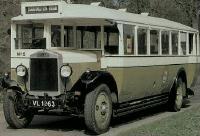The failure of British engineering, reflecting the lack of standardization
2000/05/09 Roa Zubia, Guillermo - Elhuyar Zientzia

The UK is the paradigm of a people who do not want to change the system of units. The map has been purchased and everything is expressed in miles. They measure people's weight in pounds and height in feet. Page sizes are given in inches, etc. We must recognize that changing the customs of a people can be a very long process. And it is that, at the cost of the euro, we will see fine dining. But in the UK they are not willing to change the money.
As technological society demands standardization, is it not time for them to reflect in depth there? Even if it seems a lie, a hundred years ago this reflection was made (since a hundred years ago they lived in a very technological society and standardization was being very promoted). It was made by the British consul of Amsterdam. Make and publish.
Purpose one hundred years ago
XIX. In the 20th century, among other things, there were many types of railways, which generated serious problems in the media. The question of trains was not the only example. The industry was also undergoing a major development that required a new and modern organization. In fact, in October 1898 representatives of the Zurich engineering organizations met and the international system, the metric system, was consolidated. However, the British did not see the need for a standard train until its entry into World War II. This meeting in Zurich also invented ISO standards for engineering, although in the UK they were not approved until 1966.
In 1900 the reflection of the British consul mentioned was very clear. "German engineers," he said, "have set standards for steel and iron parts. This can make effective not only the iron market, but also other markets." That is why the Germans and companies from other territories of the continent saw a clear advantage unlike the British.
Later, the British measure for the UK needed an exit to the European market. In 1965 it was announced that they would discard the use of the inch within ten years and would approve the ISO standards. Leyland Motors began manufacturing engines following European standards. However, the engines were not entirely standard. They had four types of screws, so they were only used on some buses on the continent. European buyers did not have much interest and could not do business with profit.
British Leyland failed in Central Europe because the inch was an already abandoned measure. It was outlawed in Germany in the 1930s. It was only used in some water or gas pipes and in some parts from the United States. Although inches were not used in Europe, UK engineering companies did not see the needs or adapted products to the metric system. Consequently, the ICU does not cease to abandon its products in Europe.
The predictions of the British consuls in Amsterdam were fulfilled. Without accepting the metric system and with bad marketing, they are powerful reasons for the failure of the company British Leyland. And it has not only influenced this sector, but all those based on engineering have had “losses”. Michael T. According to expert Knowles, "the economic effects of non-acceptance of the metric system by UK companies have never been quantified".
It is time, therefore, to approve the general system. And at the moment it would be best to expand the metric system. On the other hand, ISO standards are more than a hundred years old and are mandatory in use today.

Gai honi buruzko eduki gehiago
Elhuyarrek garatutako teknologia




